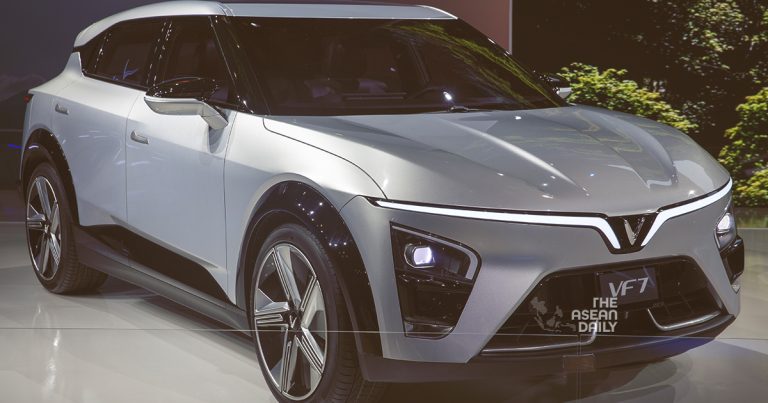5-8-2023 (HANOI) Vietnamese conglomerate Vingroup, despite its ambitious plans in the electric vehicle (EV) market, has encountered difficulties in generating profits from its EV business. The company has faced obstacles due to a slow domestic market adoption of EVs and a troubled rollout in the United States.
Vingroup’s EV arm, VinFast, operates a state-of-the-art production facility on Cat Hai Island in Haiphong, a port city in Vietnam. The facility is known for its advanced automation, with 90% of processes being automated, according to VinFast CEO Le Thi Thu Thuy.
One of VinFast’s strengths lies in its agility, as it is able to accomplish tasks that traditional manufacturers with complex decision-making systems cannot. In 2019, VinFast became the first Vietnamese company to manufacture a domestically-produced gasoline-powered vehicle. The company then transitioned to EV production in 2021 to align with the global trend towards electrification, ultimately phasing out gas vehicles entirely in 2022.
VinFast’s EV models, including a sport utility vehicle, are all manufactured at the Haiphong plant. The facility employs foreign technicians and engineers from around 30 countries, including former employees of major automakers such as Hyundai Motor, Stellantis, Toyota Motor, General Motors, and Tesla.
However, despite its impressive capabilities, the Haiphong factory has been operating at low capacity due to limited domestic demand. Vietnam’s market for four-wheeled vehicles is relatively small, with an annual scale of 400,000 to 500,000 units, as motorcycles remain the preferred mode of transportation in the country. As a result, EVs, even those from competitors like Tesla, are still a rare sight on Vietnamese streets.
In 2022, VinFast only sold 7,400 vehicles. Considering the Haiphong facility’s production capacity of 38 units per hour, or a maximum of 250,000 units per year, the factory’s utilization rate for EVs stood at around 3% last year.
To address the issue of low consumer confidence in EVs, Vingroup has been installing charging facilities in urban areas, partnering with China’s Contemporary Amperex Technology (CATL) to produce car batteries, and venturing into the EV taxi market. Additionally, the company has launched a service to buy back used EVs after five years to encourage skeptical consumers.
Vingroup is also eyeing the significant U.S. market, but its entry has been fraught with challenges. Due to a rushed vehicle rollout, VinFast had to recall all 999 units it had shipped to the U.S. in its initial batch. The recall was prompted by a software defect that raised concerns even before the export. Furthermore, the launch of production at VinFast’s U.S. plant, which was initially planned for July 2024, has been delayed to 2025 or later.
The heavy upfront investments have taken a toll on Vingroup’s financials. In the first half of 2023, the company’s manufacturing business, including EVs, recorded losses of 14 trillion dong (approximately $590 million), a slight improvement compared to the 16 trillion dong losses in the same period the previous year. Vingroup founder Pham Nhat Vuong has expressed optimism that sales will reach 60,000 to 70,000 units in 2024, with earnings before interest, taxes, and amortization (EBITA) breaking even. However, the path to profitability remains uncertain.
Vuong, known as Vietnam’s real estate tycoon, is a shrewd risk-taker who quickly exits failing ventures. Although he has invested billions of dollars into VinFast, he cannot afford to wait indefinitely for the business to take off. Despite the company’s increasing upfront costs due to the construction of the U.S. plant and research and development expenses, Vingroup’s profits have not kept pace with its rising sales in recent years. In 2021, the group reported a net loss, and its asset efficiency has deteriorated as its total assets expanded rapidly since entering the gasoline vehicle market in 2019. Vingroup’s stock price currently stands at less than half of its peak before EV production commenced.
The group’s long-anticipated U.S. listing has also encountered obstacles. Although Vingroup initially aimed for a traditional initial public offering, it switched to a listing through a merger with a special acquisition company in May 2023. A shareholders meeting is scheduled for August 10 to approve the merger.




